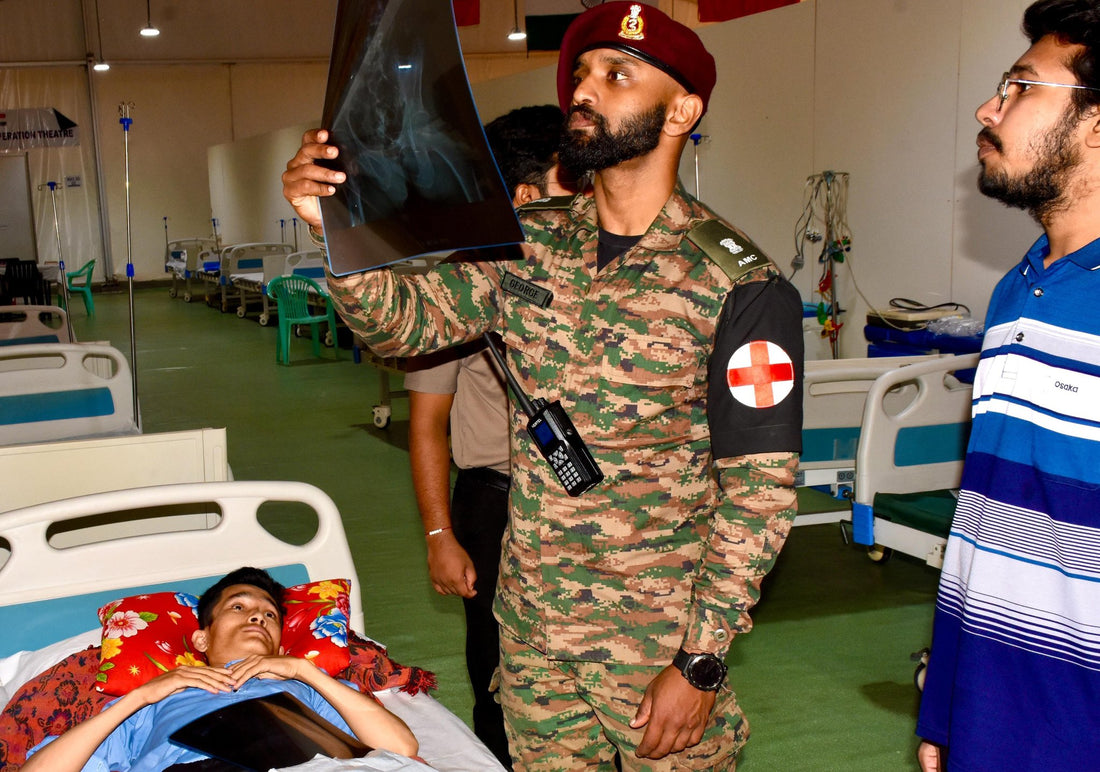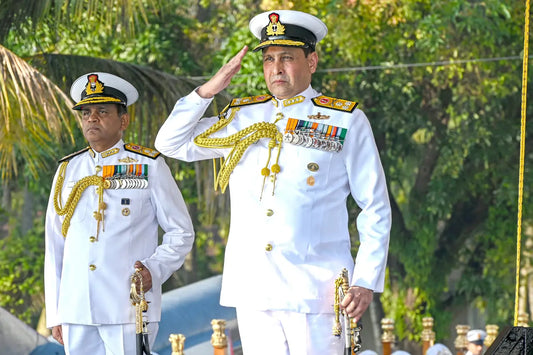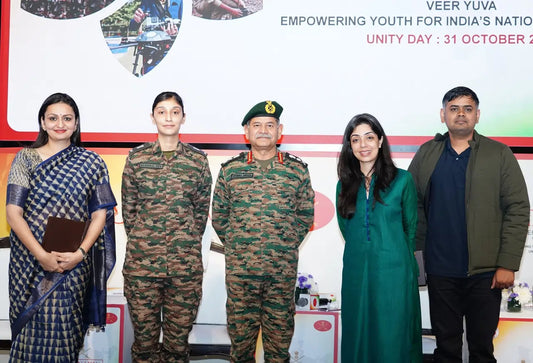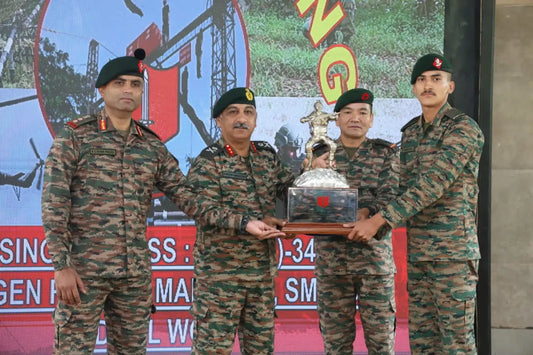Becoming a Doctor in the Indian Army: Pathways, Eligibility, and Career Opportunities

Becoming a doctor in the Indian Army is a distinguished career path that represents a deep commitment to national service. For those aspiring to apply their medical expertise within a military context, understanding the various pathways, requirements, and opportunities available is essential. As the Indian Army plays a crucial role in national security, the demand for skilled medical professionals to support its personnel is of utmost importance.
Historical Context
The Indian Armed Forces have long recognized the significance of medical support, dating back to ancient times when warrior healthcare was considered vital. The modern institutional framework was established with the founding of the Armed Forces Medical College (AFMC) in Pune in 1962, specifically designed to meet the military's medical needs. This development marked a pivotal moment, setting a structured path for aspiring doctors to join the Armed Forces.
Over the years, the role of medical professionals in the military has expanded from treating injuries to offering comprehensive healthcare, including mental health services, preventive measures, and advanced surgical procedures. As the military environment becomes more complex, the need for proficient medical practitioners continues to increase, highlighting the importance of this career.
How to Become a Doctor in the Indian Army
Two Primary Routes to Joining
To pursue a career as a doctor in the Indian Army, candidates can choose from two main routes:
-
Joining through the Armed Forces Medical College (AFMC)
- Aspiring candidates must complete grade 12 with a focus on Physics, Chemistry, and Biology (PCB) and pass the National Eligibility cum Entrance Test (NEET).
- Successful admission to the AFMC leads to a 5.5-year MBBS program tailored to military service, culminating in a permanent commission as a Lieutenant.
-
Direct Entry to the Army Medical Corps (AMC)
- This option is for graduates who already hold a recognized medical degree (MBBS or BDS) approved by the National Medical Commission (NMC).
- These graduates are recruited for a Short Service Commission, with the potential to transition to a permanent commission after a specified period.
Eligibility Criteria: A Closer Look
For Fresh Candidates
- Educational Requirements: Candidates must pass grade 12 with PCB, qualify for NEET, and secure admission to AFMC.
- Age Limit: Typically, the age limit for fresh candidates is between 17 to 22 years.
For Medical Graduates
- Degree Requirements: Candidates must hold an MBBS or BDS degree, have completed their internship, and possess permanent registration by a designated date (e.g., 31/03/2025 for 2025 recruitment).
- Age Limit: For AMC applicants, the age limit generally ranges from 30 to 35 years.
Recruitment Process
The recruitment process for medical officers in the Indian Army involves several steps, depending on the chosen pathway:
-
Written Examination
- Fresh candidates must take the NEET exam for AFMC admission, whereas AMC applicants are evaluated based on academic qualifications.
-
Service Selection Board (SSB) Interview
- After passing the written exam, candidates undergo an SSB interview to assess their suitability for military service.
-
Medical Examination
- All candidates must pass a thorough medical examination to ensure they meet the physical and health standards for military service.
-
Selection Process for AMC Candidates
- Medical graduates applying through AMC are primarily assessed through interviews and medical examinations.
Positions and Posts Available
The Indian Army recruits medical officers based on annual vacancy announcements. For instance, the 2025 Army AFMS Medical Officer recruitment offers 400 vacancies, with 300 for males and 100 for females. Aspiring candidates should ensure they meet the criteria and application deadlines.
Training & Commissioning Cycle
AFMC Route
Candidates entering through AFMC complete a comprehensive 5.5-year MBBS program that combines academic and practical training specific to military contexts. Upon graduation, they are commissioned as Lieutenants in the Indian Army.
Direct Entry through AMC
Graduates recruited via AMC begin with a Short Service Commission but can apply for a permanent commission after gaining substantial experience. This option suits medical professionals seeking flexibility within the military framework.
Salary and Benefits
One of the attractive features of being a doctor in the Indian Army is the structured salary and extensive benefits package.
Starting Salary
- A newly commissioned doctor at the Captain rank can expect a basic monthly pay ranging from ₹52,700 to ₹80,900, which translates to an in-hand salary between ₹60,000 to ₹1,00,000 with allowances.
Salary Progression
- Salaries increase significantly with rank advancements. As doctors progress from Captain to Major and eventually to Colonel or General, they can earn salaries in the lakhs per month.
Additional Perks
The compensation package also includes:
- Subsidized or free housing
- Free medical care for self and family
- Pension after retirement
- Travel allowances
- Funded opportunities for postgraduate specialization in India or abroad.
Promotions typically follow a structured timeline, with advancement from Captain to Major requiring several years, depending on performance and tenure.
Challenges and Solutions
While the path to becoming a doctor in the Indian Army is rewarding, it presents challenges:
-
Rigorous Training: The extensive training can be physically and mentally demanding.
- Solution: Candidates should prepare mentally and physically through regular fitness routines and time-management skills.
-
Work-Life Balance: The demanding nature of military duties often affects personal and family time.
- Solution: Developing strong support systems and prioritizing mental health can help mitigate this challenge.
Future Trends in Military Medicine
As the Indian Army evolves, so does the role of its medical officers. Emerging trends include:
- Advancements in Telemedicine: Technology integration enables doctors to provide healthcare in remote areas, enhancing service capability.
- Focus on Mental Health: There's an increased recognition of the importance of mental health services in high-stress military environments, likely leading to more training and support resources.
- Specialization Opportunities: The Army is expected to expand postgraduate programs, allowing medical officers to specialize in areas like trauma care, emergency medicine, and mental health.
Conclusion
In conclusion, the journey to becoming a doctor in the Indian Army is both challenging and rewarding. Whether joining through the AFMC program or applying directly as a medical graduate, individuals have access to robust career opportunities, competitive salaries, and numerous benefits. Those considering this path should be ready for the demands of military life while anticipating a fulfilling career in service to the nation.
With the 2025 AMC Medical Officer recruitment applications open until May 12, 2025, aspiring candidates are encouraged to prepare diligently to seize this opportunity.
Through commitment, resilience, and dedication, you can not only become a doctor but also play a crucial role in supporting the health and well-being of the Indian Army's brave soldiers.



















